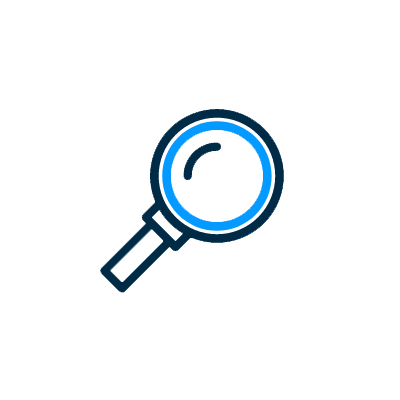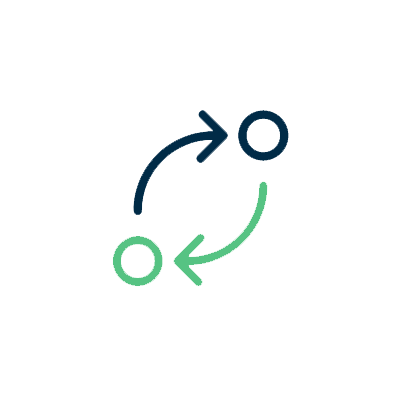
Article
Bookkeeping and its importance for small businesses
Regularly monitoring your finances and keeping accurate books is a crucial technique for running a successful owner-managed company. Read our guide to the key processes involved in small business bookkeeping.
What is bookkeeping?
Bookkeeping shows you how your business is performing by keeping track of the money coming in and out of your business.
Bookkeeping involves keeping accurate records of your income, costs and expenses which helps you to understand the profitability of your business. It also provides the information you need for completing annual tax returns, process purchase and sales invoices and chase unpaid bills.
The term ‘bookkeeping’ originates from the use of physical daybooks, cashbooks and ledgers. Nowadays, most small businesses use digital accounting software.
What is double-entry bookkeeping?
Double-entry bookkeeping is a system of accounting that has been used since the 13th century.
Using double-entry bookkeeping, a business owner can track all financial transactions and understand how the company is performing in terms of profitability, cash balances and business growth.
It also allows a business owner and their accountant to access the information needed to deal with tax and financial submission requirements, including, annual accounts, tax returns and cash flow projections.
The key principle of double-entry bookkeeping is that every transaction has two equal and opposite elements. For example, when you sell goods, your cash balance increases and your stock levels go down.
A business’ accounting records are an accumulation of double entries which can be summarised in what is known as a general ledger.
A general ledger is usually divided into at least nine main categories:
- Assets
- Liabilities
- Capital Introduced
- Owners’ equity/shareholding
- Income
- Expenses
- Drawings
- Gains
- Losses
What are the differences between bookkeeping and accounting?
Bookkeeping and accounting can sometimes be confused because they overlap in many ways.
Bookkeeping is the day-to-day recording and categorising of a business’ financial transactions, while accounting is the process of putting that financial data to use, through analysis, strategy and planning.
Basic bookkeeping for small businesses
Keeping an accurate, up-to-date set of books is a key feature of a well-run business.
Bookkeeping allows you to:
- track whether your business is making a profit/loss
- access the information you need for accurate tax returns and business planning
- monitor if a cash flow problem is approaching so you can prepare for it
- spot incorrect payments or potential fraud
Traditional accounting vs. cash basis accounting
To do your bookkeeping and work out your taxable profits, you need to select an accounting method. Your choices are traditional (accrual) accounting or cash basis accounting.
Traditional accounting involves recording income and expenses according to the actual date you invoiced or were billed. Cash basis accounting means you only need to declare income or expenses when it comes into or leaves your business.
It is recommended that you speak to an accountant for help on which is the best accounting method for your business.
Bookkeeping software for small businesses
If you use bookkeeping software, the process will likely be much more efficient.
The automation provided by bookkeeping apps for small businesses speeds up processes and makes it easier for your accountant to help you as they can simply login and check how items are being classed.
Other advantages of online bookkeeping and accounting software include:
- automatically send invoices to customers
- automatically pay bills
- keep track of what your customers owe you
- keep track of what you owe your suppliers
- access financial information on the move
- get up-to-date details required by lenders or suppliers offering credit
Can I do my own bookkeeping?
While it is advisable to employ a professional bookkeeper or accountant, it is possible to do your own bookkeeping. If so, you need to bear in mind what’s involved. It may be more cost effective to use the service of a professional.
Doing your own bookkeeping means you need to:
- select and understand an accounting method
- understand what records you need to keep and maintain them
- keep a robust audit trail of all financial activities
- select suitable accounting software
- allocate funds for tax
- stay aware of tax return deadlines to avoid fines
Bookkeeping can be self-taught over time, but business owners need to decide if they have the time to do it. Some bookkeeping techniques take many months to master, and most owner-managed businesses don’t have the capacity for daily tracking of income and expenses.
We make bookkeeping simple for small businesses
TaxAssist Accountants are experienced bookkeepers. We remove the need for time-intensive manual record keeping and improve the overall efficiency of your books, giving you real-time, valuable insight into your operations.
To find out how we can make bookkeeping easier for your business, call 08 6245 7506 or use our online enquiry form.
Date published 30 Sep 2022
This article is intended to inform rather than advise and is based on legislation and practice at the time. Taxpayer’s circumstances do vary and if you feel that the information provided is beneficial it is important that you contact us before implementation. If you take, or do not take action as a result of reading this article, before receiving our written endorsement, we will accept no responsibility for any financial loss incurred.Choose the right accounting firm for you
Running your own business can be challenging so why not let TaxAssist Accountants manage your tax, accounting, bookkeeping and payroll needs? If you are not receiving the service you deserve from your accountant, then perhaps it’s time to make the switch?

Local business focus
We specialise in supporting independent businesses. Each TaxAssist Accountant runs their own business, and are passionate about supporting you.

Come and meet us
We enjoy talking to business owners and self-employed professionals who are looking to get the most out of their accountant. You can visit us at any of our multiple locations, meet with us online through video call software, or talk to us by telephone.

Switching is simple
Changing accountants is easier than you might think. There are no tax implications and you can switch at any time in the year and our team will guide you through the process for a smooth transition.